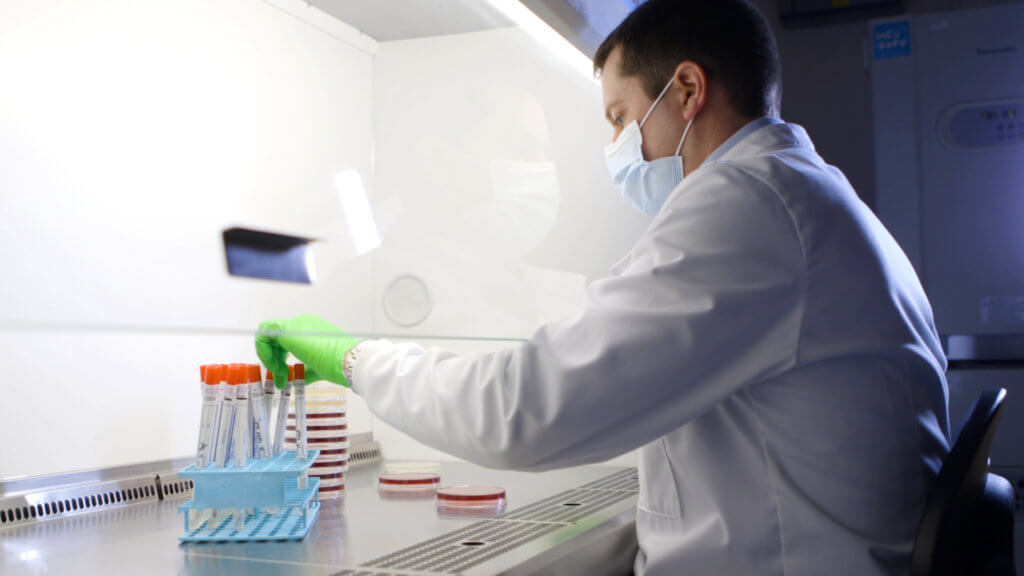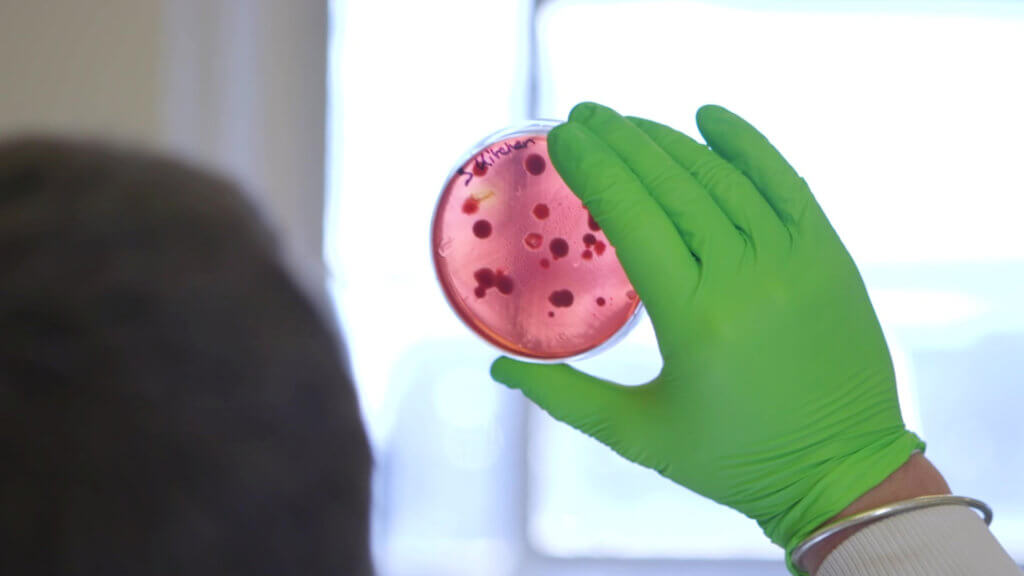If you’re not a fan of stomach bugs, you may want to spray your kitchen sink with sanitizer more often. A recent study reveals that certain areas of your home — and even the remote control on on your couch — may contain more bacteria than your toilet seats!
A swab test on everyday items including bathroom faucets, door handles and keys found traces of Staphylococcus and even possible E. coli — bacteria usually found in human intestines or on our skin. The TV remote and trash can lid were also among the items tested.
But it was the kitchen sink faucet which was one of the most contaminated items sampled, with high levels of bacteria found on it. As for the toilet seat: it contained less bacteria than the handle of the kettle, the TV remote and a set of house keys.

The kitchen trash can lid also revealed high levels of bacteria, possibly E.coli, which is found in the human gut And the handle of the kettle had large amounts of Staphylococcus Aureus – bacteria often found on skin, as well as the nose, armpits, groin or under skin folds.
The experiment follows a study of 2,000 British adults, commissioned by 24-hour disinfectant brand Microban 24. Survey results show many people don’t regularly clean surfaces and items that are touched multiple times a day.
More than one in 10 don’t wipe down the toilet and the flush knob as part of their cleaning routine. And nearly three in 10 (29 percent) don’t regularly clean their door handles.
“While it might seem shocking, it’s not that surprising that we found bacteria on these high contact surfaces,” says Dr. Jonathan Cox, a microbiologist from Aston University, who carried out the swab test, in a statement. “We actually found more bacteria on the handle of the kettle than we did on the toilet seat. That may sound startling, but perhaps if you think about how regularly you clean those different environments it may be less surprising.
“I think it shines a light on the particular areas that maybe we don’t think of cleaning quite so regularly,” he continues. “Hopefully people will think a little bit more about where and how they are cleaning and not just keeping those same surfaces continuously clean every day.”
The experiment saw the swabs plated out in nutrient agar and incubated at body temperature – the optimum temperature for bacteria growth – for 24 hours.
Cox says the TV remote was home to possible E. coli, while backsplash surrounding the sink was found to have Pseudomonas, which is often found in soil and plants.
The survey, conducted by OnePoll, found the average adult spends about 90 minutes cleaning their home. But 47 percent admit this has increased by an average of 43 minutes since the start of the pandemic.
Despite this, more than one in 10 have never cleaned their front doorknob, and another 7 percent haven’t ever wiped down their internal doorknobs.

Others have never cleaned remote controls (13 percent), stair handrails (5 percent) and mobile phones (11 percent). Surprisingly, 3 percent have NEVER cleaned the toilet handle – despite 20 percent believing this to be one of the most contaminated items in the home.
Three in four adults (76 percent) expect their cleaning products to offer some level of lasting protection against bacteria, when this usually isn’t the case. In fact, every time you touch a surface, bacteria can redeposit.
It also emerged that more than a quarter of adults don’t always wash their hands when they go to the toilet. Just 54 percent of those with children are confident their youngsters do. And only 55 per ent of people wash their hands after coming home from a public place such as the supermarket.
The study also reveals that six in 10 have become more concerned about bacteria and viruses in their home since the outbreak of the pandemic.
So which types of bacteria did Cox find across swabbed areas of homes? He warns about the following:
● Sink backsplash: Pseudomonas sp.
● Sink drain: possible E. coli
● Kitchen faucet: Pseudomonas sp.
● Trash can lid: possible E. coli
● Kettle handle: Staphylococcus sp.
● TV remote: possible E. coli
● Washing machine: Pseudomonas sp.
● Bathroom faucet: Pseudomonas sp.
Household items and objects not cleaned regularly as part of daily cleaning routines
- House keys (60 percent)
- Car keys (56 percent)
- Remote controls (47 percent)
- Computer keyboards (43 percent)
- Computer mouse (41 percent)
- Mobile phones (41 percent)
- Light switches (36 percent)
- Front door handles (35 percent)
- Telephones / landline handsets (35 percent)
- Gaming controllers (33 percent)
- Internal door handles (29 percent)
- Cupboard doors / handles (26 percent)
- Stair railings / bannister (26 percent)
- Bin lids (23 per cent)
- Toilet flush (14 per cent)
Report by 72 Point writer Gemma Francis












